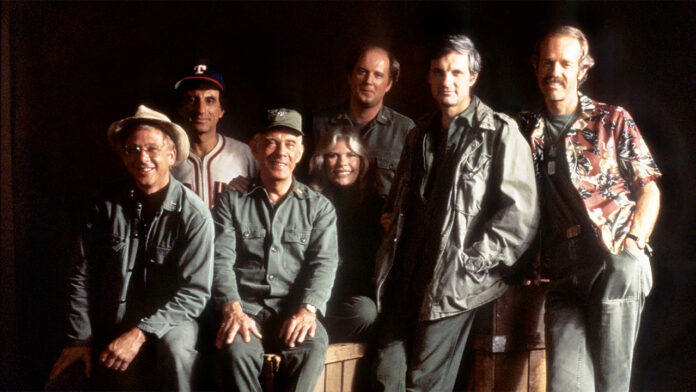MASH, the groundbreaking television series that aired from 1972 to 1983, remains one of the most beloved and enduring shows in television history. Set against the backdrop of the Korean War, MASH captivated audiences with its unique blend of humor, drama, and social commentary. In this article, we delve into the fascinating world of MASH, exploring its legacy, impact, and behind-the-scenes trivia.
The Birth of MASH
Based on a Movie: MASH was inspired by the 1970 film of the same name, which was itself based on Richard Hooker’s novel “MASH: A Novel About Three Army Doctors.” The film, directed by Robert Altman, was a critical and commercial success, laying the groundwork for the television series.
A Different Kind of War Show: Unlike traditional war dramas, MASH eschewed glorification of combat in favor of exploring the human side of war. The show’s creators, Larry Gelbart and Gene Reynolds, sought to portray the absurdity and tragedy of war through the lens of a mobile army surgical hospital (MASH) unit.
Cultural Impact
Breaking Barriers: MASH was groundbreaking in its depiction of sensitive issues such as the toll of war on soldiers and civilians, the futility of armed conflict, and the challenges of providing medical care in a combat zone. It tackled these subjects with wit, compassion, and irreverence, earning critical acclaim and a loyal fanbase.
Addressing Social Issues: Throughout its run, MASH addressed a wide range of social and political issues, including racism, sexism, mental health, and the consequences of war. Its thought-provoking storylines and multidimensional characters sparked conversations and raised awareness about pressing issues facing society.
Memorable Characters
Hawkeye Pierce: Played by Alan Alda, Captain Benjamin Franklin “Hawkeye” Pierce was the charismatic and irreverent chief surgeon of the 4077th MASH unit. Known for his wit, compassion, and anti-authoritarian streak, Hawkeye served as the heart and soul of the series.
Radar O’Reilly: Another beloved character was Corporal Walter “Radar” O’Reilly, played by Gary Burghoff. Radar, the unit’s company clerk, possessed an uncanny ability to anticipate the needs of his fellow soldiers and had a close bond with the MASH’s pet horse, Sophie.
Hot Lips Houlihan: Major Margaret “Hot Lips” Houlihan, portrayed by Loretta Swit, was the head nurse of the 4077th MASH unit. Initially depicted as strict and by-the-book, Hot Lips gradually evolved into a complex and sympathetic character, earning the respect and admiration of her colleagues.
Colonel Sherman T. Potter: Colonel Sherman T. Potter, played by Harry Morgan, was the commanding officer of the 4077th MASH unit. A seasoned military man with a heart of gold, Colonel Potter provided steady leadership and fatherly guidance to the staff, earning their loyalty and affection.
Father Mulcahy: Father Francis John Patrick Mulcahy, portrayed by William Christopher, was the unit chaplain of the 4077th MASH. A compassionate and devout Catholic priest, Father Mulcahy offered spiritual support to the soldiers and medical staff, serving as a source of comfort and solace in times of crisis.
Klinger: Corporal Maxwell Q. Klinger, played by Jamie Farr, was the MASH unit’s resident clerk and company clerk. Known for his quirky personality and outrageous schemes to get discharged from the army, Klinger provided comic relief and moments of levity amidst the chaos of war.
Charles Emerson Winchester III: Major Charles Emerson Winchester III, portrayed by David Ogden Stiers, was the replacement for Frank Burns as the unit’s head surgeon. Despite his initial aloofness and snobbish demeanor, Winchester proved to be a skilled surgeon and a valuable member of the team, earning the respect of his colleagues.
Nurse Kellye Yamato: Nurse Kellye Yamato, played by Kellye Nakahara, was one of the dedicated nurses serving in the MASH unit. While she had fewer lines than some of the other characters, Nurse Kellye was a beloved member of the ensemble cast, known for her professionalism and compassion.
Colonel Flagg: Colonel Sam Flagg, portrayed by Edward Winter, was a recurring character known for his eccentric behavior and paranoid conspiracy theories. As an intelligence officer, Colonel Flagg often appeared unannounced at the MASH unit, causing chaos and confusion among the staff.
Behind-the-Scenes Trivia
Filming Location: While MASH was set in Korea, the series was filmed on location at the Fox Ranch in Malibu Creek State Park, California. The sprawling outdoor set, complete with tents, jeeps, and a fully functional operating room, lent authenticity to the show’s wartime setting.
Lasting Legacy: Even after its final episode aired in 1983, MASH continued to resonate with audiences around the world through syndication and streaming platforms. Its influence can be seen in subsequent medical dramas and war-themed television series, cementing its status as a television classic.
Awards and Recognition
Emmy Success: Over its 11-season run, MASH received numerous awards and accolades, including 14 Emmy Awards and a Golden Globe for Best Television Series – Musical or Comedy. Alan Alda also won multiple Emmy Awards for his portrayal of Hawkeye Pierce.
Enduring Popularity: Decades after its original broadcast, MASH remains a beloved cultural touchstone, with fans of all ages rediscovering its timeless humor and poignant storytelling. Its legacy lives on through DVDs, streaming services, and dedicated fan conventions.
Conclusion: Celebrating the Enduring Legacy of MASH
In conclusion, MASH stands as a testament to the power of television to entertain, educate, and inspire. Through its captivating storytelling, memorable characters, and thought-provoking themes, MASH left an indelible mark on the cultural landscape and continues to captivate audiences worldwide. As we celebrate its enduring legacy, let us remember the laughter, tears, and profound insights that MASH brought into our lives, reminding us of the enduring power of humanity in the face of adversity.

